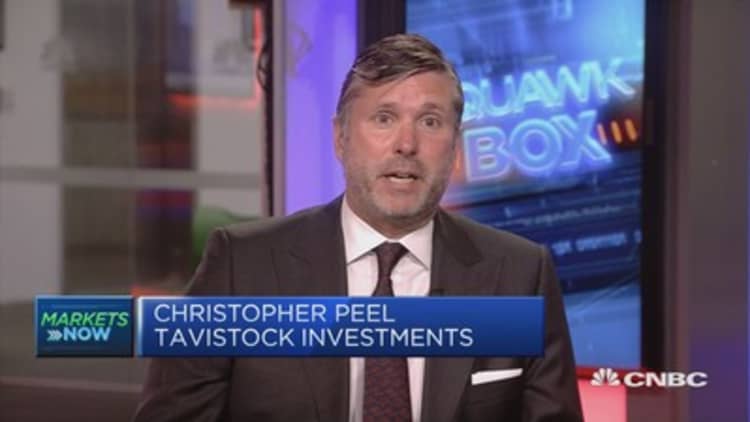
Investors in the U.K. bond market could see losses on their bond portfolios as the Bank of England continues to be behind the inflation curve, an investment officer told CNBC on Monday.
"I see a scenario where losses will be inflicted on bond portfolios like we've never seen in our time," Christopher Peel, chief investment officer at Tavistock Investments, said Monday.
"Governments and corporations have been issuing longer and longer duration maturity debt which has made its way into the markets themselves. When you look at the gilt market going back at the end of 90s the average duration of the guilt mark was around six and a half years, now it's around eleven. That's a recipe for losses in the most conservative portfolios," he said.
Bond investors have shown some concerns over the outlook for the U.K. economy amid the kick-off of the U.K's departure from the European Union. Yields on sterling-denominated bonds have remained low over the last months.
According to Peel, "You could easily see a 2 percentage point rise in rates if the Bank of England is as far behind the inflation curve as I think they are."
The central bank has kept interest rates low and unchanged despite the data showing the economy has mostly shrugged off any impact from its decision to leave the EU.
Earlier this month, the BoE kept its policy unchanged but fewer members voted in favour of holding rates than what analysts were expecting. Those who voted to raise rates mentioned concerns regarding inflation overshooting its 2 percent target in recent months.
Nonetheless, there are other bond markets offering perhaps more attractive positions. "I think you look at EM (emerging markets)," Peel said, "that's where I am, not so sure if I would have a large position to develop market high yield but EM local currency, EM dollar denominated debt and a diversified portfolio as your fixed income portfolio with a short duration it's probably a good balance against having an overweight position in global equities."


